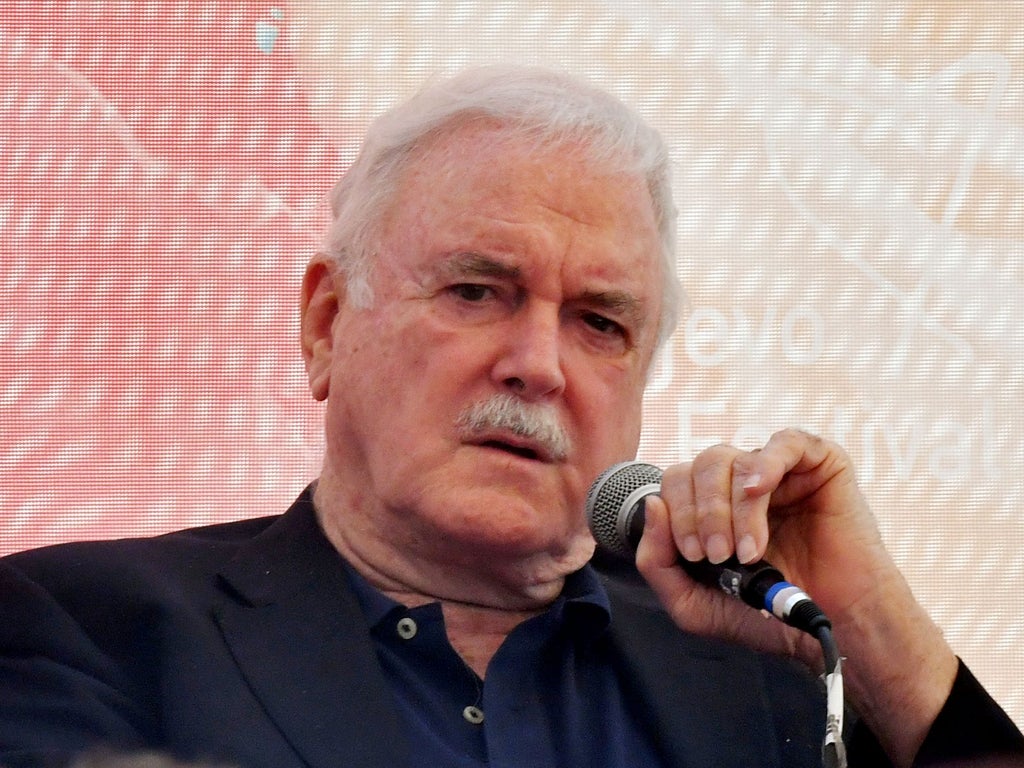
Forty-two years ago, John Cleese appeared on national TV and fought against cancel culture. The phrase hadn’t been invented yet, but he was, genuinely, a victim of it. The comedian sat beside his fellow Monty Python star Michael Palin on the BBC’s Friday Night, Saturday Morning as they defended The Life of Brian from bitter, censorious attacks from satirist Malcolm Muggeridge and the Bishop of Southwark, Mervyn Stockwood. Brian was a subversive work in many ways – a comedy that targeted not the Christian religion itself but the idiocies of mass conformance – and the criticism was vitriolic. This was an oppressive establishment force trying to censor free speech; Cleese’s response was eloquent, nuanced and compelling. Half a lifetime later, however, and hearing Cleese talk about cancel culture is enough to send you running for the hills.
And yet, that’s exactly the premise of a new Channel 4 series, announced yesterday. Tauntingly titled Cancel Me, the doc will reportedly see Cleese explore “why a new ‘woke’ generation is trying to rewrite the rules on what can and can’t be said”, speaking to people who claim to have been “cancelled” by the mob of public opinion. Cleese has himself faced the slings and arrows of such a mob several times in recent years, of course. He was branded “xenophobic” for comments in 2019 that London was “not really an English city any more”, and was accused of transphobia over tweets he made in support of controversial Harry Potter author JK Rowling. Was this really cancel culture? This is not the Christian-conservative hegemony objecting to free speech; as I see it, the “cancelling” is being done by and in support of oppressed groups. I think it would be disingenuous to claim there is no difference here. Context is not just relevant, but vital to understanding any of it.
The thing is, so-called cancel culture is a nuanced topic, one that ought to merit nuanced discussion. An in-depth, multi-part documentary may be a great idea. But even the project’s name seems to me to forewarn that Cleese, a vocal critic of “wokery” and “moral self-promotion”, will stick to the usual blunt talking points. Part of the problem is the term “cancel culture” is often used as a conflation of several overlapping but separate ideas: accountability; public shaming; censorship. Criticising a contemporary comedian for making racist or sexist jokes in a stand-up routine is not the same thing as adding a content warning to a decades-old TV series that featured a character in blackface – which is a different thing still to cancelling a film deal because of a star’s abusive off-screen conduct. “Cancel culture” is such a broad umbrella term as to be essentially meaningless; it just gives people who are facing criticism a neat, alliterative enemy to fixate on.
Everyone advocates for “cancel culture” to some extent: everyone is subject to some degree of accountability. That is why we have a system of laws, why you are not allowed to go around murdering or defecating on street corners. But the reasonable limits of accountability are vague, and subjective, and rely on a consensus opinion that inevitably shifts with changing social attitudes over the course of generations.
Last year saw Cleese condemn UKTV’s decision to remove a classic Fawlty Towers episode from its platform over its inclusion of racist language. Cleese argued that the character using anti-German slurs, The Major, was an “old fossil”, and that the series was “making fun of” his views, not supporting them. The episode was later reinstated with a disclaimer at the beginning concerning “offensive content and language”. It’s a pretty reasonable solution: everyone is still free to watch it, but anyone likely to be offended has been given fair warning. Calling this “cancel culture” would be a gross misnomer. Cleese himself also remains thoroughly uncancelled, in any sort of literal sense: it’s hard to argue that anyone who’s just signed a new, widely publicised TV deal is being denied a voice by some invisible PC cabal. How that voice will be used, however, remains to be seen.
You never know. Maybe he’ll be able to channel some of the same progressivism and intellectual openmindedness he exhibited at the BBC debate all those years ago, the same sharp and socially perspicacious humour that made him a star. Otherwise, he’ll risk just being another old fossil, preaching gospel to the converted.







